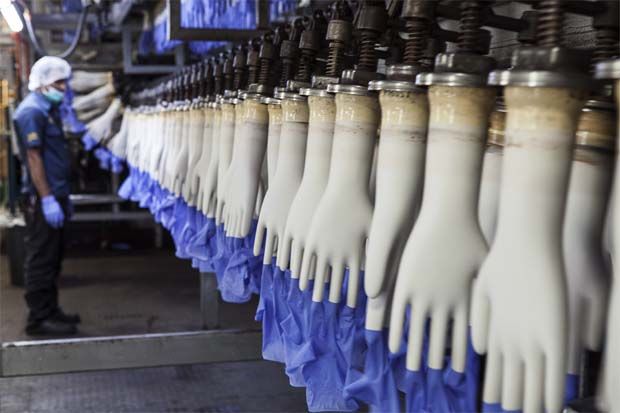Buy defensive stocks in 2019, investors advised
PETALING JAYA: Stocks on Bursa Malaysia are heading into the last trading day of 2018 from inside correction territory, and for investors looking to protect returns on their portfolio in the new year, experts suggest playing it safe.
A survey of some of the analysts’ top recommended stocks for 2019 revealed that defensive plays are back in vogue, with counters featuring higher than average dividend yields making the top cut.
Companies in the insurance business, traditionally shunned for being unexciting, featured prominently in several December strategy reports.
Glove makers remained in favour given their relatively resilient earnings growth profile, while bombed out stocks in the oil and gas sectors are also winning new fans.
The firm’s top sector picks are rubber glove, oil and gas, healthcare and insurance.
The insurance sector is also one of the top picks at MIDF Research. The firm noted that insurance is the fastest growing segment in the services sector in the first three quarters of 2018.
It expects the trend to continue in 2019, boosted by further liberalisation of the industry and several government’s initiatives aimed at increasing take-up rates.
Most analysts are cautious on their medium term outlook for equities, with sentiment at the mercy of the US-China trade war, Brexit, interest rate movement in developed countries and unpredictable swings in financial markets.
On the local bourse, the FTSE Bursa Malaysia KL Composite Index (KLCI) added more than 50 points over the past two weeks, rising from its lowest level this year, to end Friday at 1,692 points.
Despitre the recent recovery, the index was still down 10.7% from its all time high 1,895 points achieved on April 19. A drop of more than 10% is enough to be considered a market correction.
The sell-off on the local bourse began in mid-April and got worst in May following Barisan Nasional surprise defeat in the general election. By July the stock market began to recover some lost ground but succumbed to another rout October, followed by another selling bout in early December.
Year-to-date, the benchmark index was down 5.8% and is set for its biggest annual decline in ten years. Only Indonesia and India fared better, while other markets across the region, including those in China, Japan, South Korea, Thailand and Singapore suffered double-digit drops.
MIDF research said Malaysia suffered the second lowest net outflow of foreign funds amounting to RM11.6bil (US$2.8bil) behind Philippines (US$1bil).
Thailand was the worst hit market in the region, recording US$9bil in outflow in 2018, ahead of Indonesia at US$4bil.
Emerging markets as a whole may fare better in 2019, according to a Bloomberg survey of 30 investors, traders and strategists.
Stocks, currencies and bonds of developing economies have found a floor and will probably outperform their developed-nation counterparts next year, the survey found.
Bernama, in a report, quoted the Malaysian Association of Technical Analysts chairman Datuk Nazri Khan Adam Khan as saying that foreign selling has stabilised and flattened this week despite uncertainties surrounding the market.
Sentiment remained cautious amid lingering concern following headwinds from trade tensions and global growth, higher interest rates and the ongoing US government shutdown, but Wall Street’s recent record rebound gave a much-needed boost to battered markets across Asia.
“With huge window dressing and index rebalancing seen towards the end of the year, the local equities market is expected to bounce in the near-term as the market was oversold for weeks.
“New year feel good factors will see institutions starting to accumulate with the benchmark index trending higher at 1,700 points,” he said. Mohd Nazri said the ringgit was also expected to improve in tandem with the flattening trend in foreign selling.
Source: TheStar

